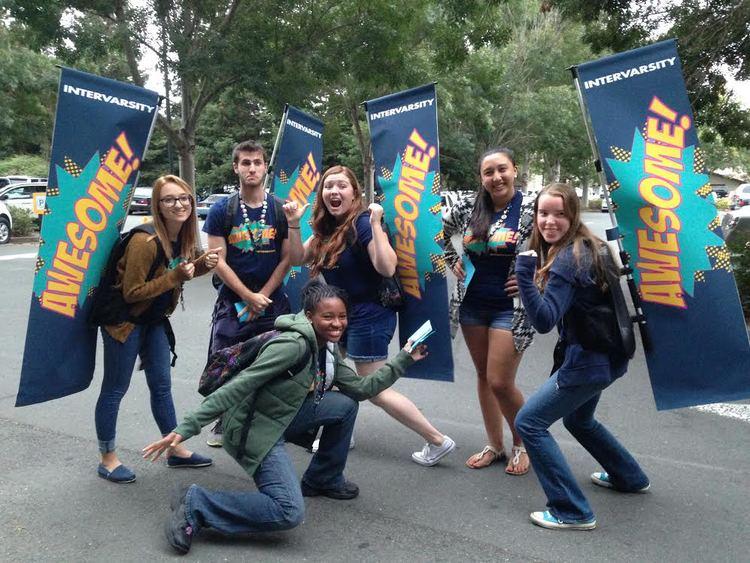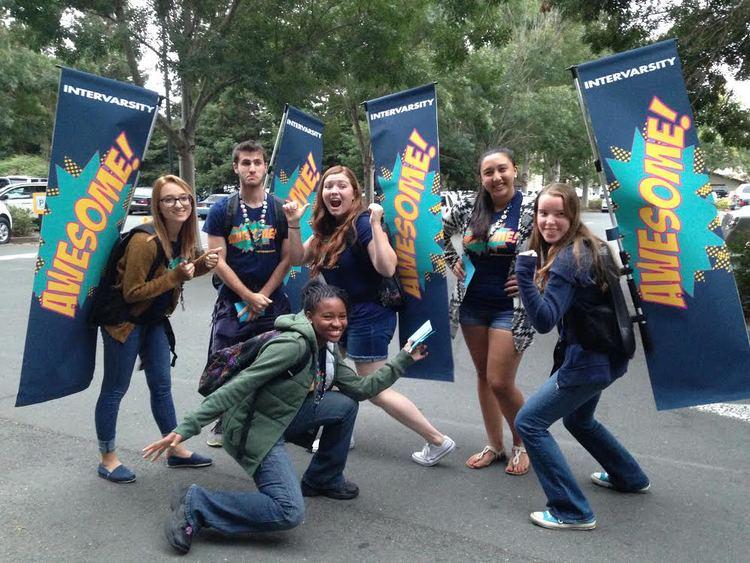A Christian club’s loss of status as a club at Sonoma State University last fall was the focus of a Student Center debate Wednesday between two instructors, a discussion that centered on whether there’s still room to talk about religion on campuses.
The two sides seemed to agree that there’s still space to discuss religion even within the confines of a new California State University rules limiting the ability of faith-based clubs to require choosing their leaders in the manner they would like. But they disagreed on whether changes in the policy were needed.
The controversy is rooted in a CSU chancellor decision enacted in 2011 that requires clubs on campus to not only allow anyone to be a member, but to allow anyone to be a club leader.
Jenny Klouse, director of InterVarsity Christian Fellowship at Sonoma State, acknowledged that her Christian club, as with Athletes in Action, is in conflict with the new rule because it has for years asked all of its leaders to sign a statement of faith.
“So therefore we violate the chancellor’s policy, we cannot be a club,” Klouse said.
As a result, InterVarsity, and Athletes in Action, has been derecognized as clubs, which means they can no longer put out tables at orientation activities and other events and cannot use on-campus meeting space for free. In order to continue meeting on campus, the group is paying $900 a week to use the Cooperage on Thursday nights for meetings.
Eric Williams, chair of criminal justice department and one of the panelists at the event, said it was unfortunate what happened to InterVarsity but he understood why the chancellor adopted the non-discrimination rule regarding clubs.
It’s related to some court cases including a 2010 case involving the University of Hastings Law School in which the courts found that the university didn’t violate the rights of students in a Christian group that was decertified because it required its members and its leaders to sign a statement of faith in order to join and lead.
“One of the big issues when it comes to religion, especially on a campus like this is that, on one hand, every citizen of the United States has free exercise rights, which means I’m allowed to practice my religion without the involvement with the government,” Williams said.
On the other hand, he said, there’s also a clause in the U.S. Constitution that prohibits laws respecting an establishment of religion.
The courts have since found that establishment clause extends to prohibiting faith-based clubs at taxpayer-supported universities from discriminating in who they allow as members and leaders, he said.
Paul Gullixson, instructor and adviser of the Sonoma State STAR, said he understood where the rule came from but he disagreed with the policy saying, “Nobody should be happy with an outcome that requires a religious group to disavow its faith in order to stay on campus.”
“When students enroll at Sonoma State, they eat here. They sleep here. They study here. They engage in social relationships here,” Gullixson said. “They should not have to go off campus or pay extra in order to worship here.”
He believed the solution was to encourage the California State University system to exempt religious institutions from the rule, as has occurred at Ohio State University, the University of Florida and other campuses with similar non-discrimination policies. Fraternities and sororities are already exempt from the rule prohibiting discrimination by campus organizations.
He also noted that legislation has been introduced in Sacramento, AB 1212 by Assemblywoman Shannon Grove, R-Bakersfield, that would prevent the California State University and University of California systems from decertifying clubs for imposing requirements on its leaders or voting members.
Klouse said InterVarsity, which organized the Wednesday panel, plans to hold similar on-campus forums in the future.





![[Both photos courtesy of sonoma.edu]
Ming-Ting Mike Lee stepped in as the new SSU president following Sakakis resignation in July 2022](https://sonomastatestar.com/wp-content/uploads/2024/04/CC4520AB-22A7-41B2-9F6F-2A2D5F76A28C-1200x1200.jpeg)



























